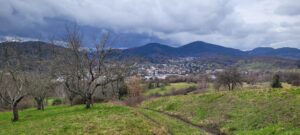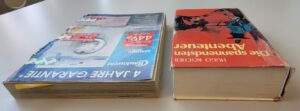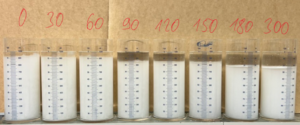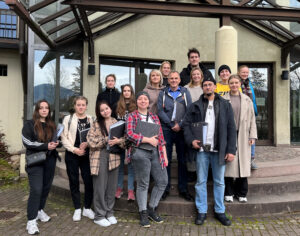-
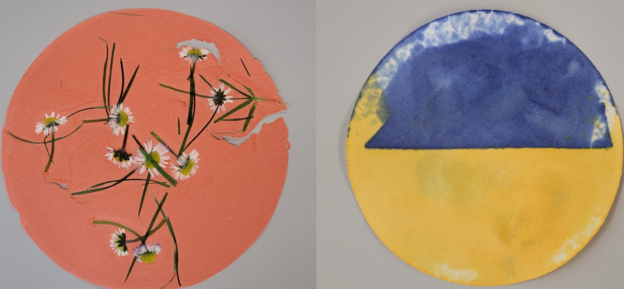
The beginning of the trip and internship was already very promising for us! During our visit to Berlin and the BHT, Ukrainian students familiarized themselves with laboratory equipment and conducted an experiment to test the strength of a box.
During our internship in Gernsbach, we conducted tests on paper using modern equipment. We conducted various tests to determine the thickness, strength, and durability of the paper. Our studies also included the theory of color and how light can impact the color of packaging, clothes, and other objects. Additionally, we explored the different methods of paper production used for books and magazines in order to understand the reasons behind their variation.
All of us attended the papermaking laboratory rounds, where we learned about properties and differences of various types of paper. Additionally, we learnt about the process of making paper and testing it’s different physical qualities, and about the usage of different equipment that was used in the paper-making process. Each student then made their own paper sheets in the laboratory and tested their quality. Additionally, in the laboratory we learned about refining of the paper and what properties of the paper it influenced.
We learned about the types of paper and their properties. According to the product, the paper must match the specified requirements. In the photo, you can see the difference between a book (~300 pages) and a magazine (~1000 pages); for a book, the sheets are thicker.
Refining is a fiber processing in which fibers are cut/shortened; and externally squeezed, which results in a bushy surface; internally squeezed, which makes the fibers flatter. Refining helps to give the fibers the necessary properties that help in the creation of paper and impart certain parameters to the finished product. The longer the refining time, the more the fibers are chopped, which affects the settling of the fibers in the suspension and the subsequent strength of the finished paper.
During our visit, we were given a tour of the packaging production facility where we got to observe the various stages of production. After the tour, we participated in a visual lab session where we learned how to automate the machines in CAPS.
We had an enriching cultural and recreational program. During our time together, we were able to form strong relationships between Ukrainian and German students. We enjoyed playing billiards and bowling, visiting the gym and sauna, and spending many warm evenings sharing interesting stories and exchanging experiences.
The English language has become an integral part of our daily lives, especially in the field of education. It has enabled us to communicate effectively with teachers and professionals from different parts of the world, fostering knowledge exchange and the creation of foreign partnerships. The importance of the English language cannot be overstated in our globalized world, where it serves as a bridge between cultures and opens up new opportunities for education and professional growth. Therefore, it is essential to study and improve our English skills to keep up with the demands of the modern world and to succeed in our personal and professional endeavors.
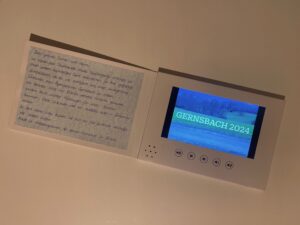
Thank-you card for Fritz Landmann foundation with integrated monitor and video-clip about the trip – please see two videos for more details
The last videos shows the colouring of paper and sheet forming under lab conditions.
Please have a look onto the NUFT webpage, too.

